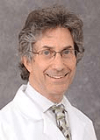Progress in HIV/AIDS treatment offers hope for COVID-19
December 1, 2020
By: Jonathan Allen Cohn, MD, MS, FACP, FIDSA, Wayne Health Department of Internal Medicine, Director of Adult HIV/STD Program and MATEC-Michigan, Professor of Medicine at Wayne State University School of Medicine.
As we continue to battle COVID-19, responsible for 1.4 million deaths across the world to date, we can pause on World AIDS Day, December 1, to acknowledge the extraordinary improvements in HIV care and prevention. The progress in treatment and prevention has created the opportunity for the U.S. to end the HIV epidemic with the goal of reducing HIV transmission in our nation by 90% by the year 2030. The ongoing multi-tiered response to HIV can inspire us as we confront the COVID-19 pandemic.
In 1981, AIDS emerged as a rapidly fatal, transmissible and incurable disease.
Thanks to the collaboration of basic scientists, medical providers and the community, research and clinical trials have transformed HIV into a treatable and preventable condition. People with HIV who take antiretroviral medicines and have a controlled virus can now enjoy a full life and do not transmit HIV.
Physicians and providers at the Wayne Health/Wayne State University Infectious Disease Clinic have been among those leading the way in developing new, effective treatments for HIV/AIDS. They were the first to treat AIDS patients in Michigan in the 1980s, and continue to successfully treat the largest number of people with HIV in the state today. Ryan White and other public funding make HIV care and support services available at Wayne Health/WSU to everyone regardless of insurance or ability to pay.
World AIDS Day is an opportunity for people worldwide to unite in the continued fight against HIV, to show support for people living with HIV, and to commemorate those who have died from an AIDS-related illness.
It’s also a good time to remember all the progress that’s been made in HIV treatment and prevention, including:
- antiretroviral therapy, which reduces the amount of virus in the blood to an undetectable level, allowing people with HIV to continue living a healthy life without any risk of sexually transmitting the virus to their partners. Current research focuses on the development of easier-to-use antiretroviral regimens with fewer tablets or long-acting injections and less chance of side effects
- pre-exposure and post-exposure prophylaxis medicines, that are effective in preventing HIV transmission to HIV-negative people
- treatment that prevents HIV transmission from HIV positive mothers to their infants so that we can aim at zero perinatal transmissions
- targeted interventions to stop transmission within clusters and communities
Research continues towards the development of antibody-based treatments to prevent the entry of the HIV virus into cells, or to trigger an immune response to HIV-infected cells to kill the virus. Research also continues toward a therapeutic vaccine that can be given to those infected with HIV, and a preventive vaccine to protect uninfected persons. Inspired by two people whose HIV was cured by stem cell transplants, there is a worldwide research effort to discover a practical HIV cure.
The tremendous progress in treating HIV demonstrates the role and the power of research and clinical trials in saving lives, improving quality of life for people with infectious diseases, and controlling epidemics, whether it be HIV or COVID 19.
You can reach the Wayne Health/WSU Infectious Disease Clinic at the Tolan Park Medical Office Building in Detroit by calling 313-966-7601.
